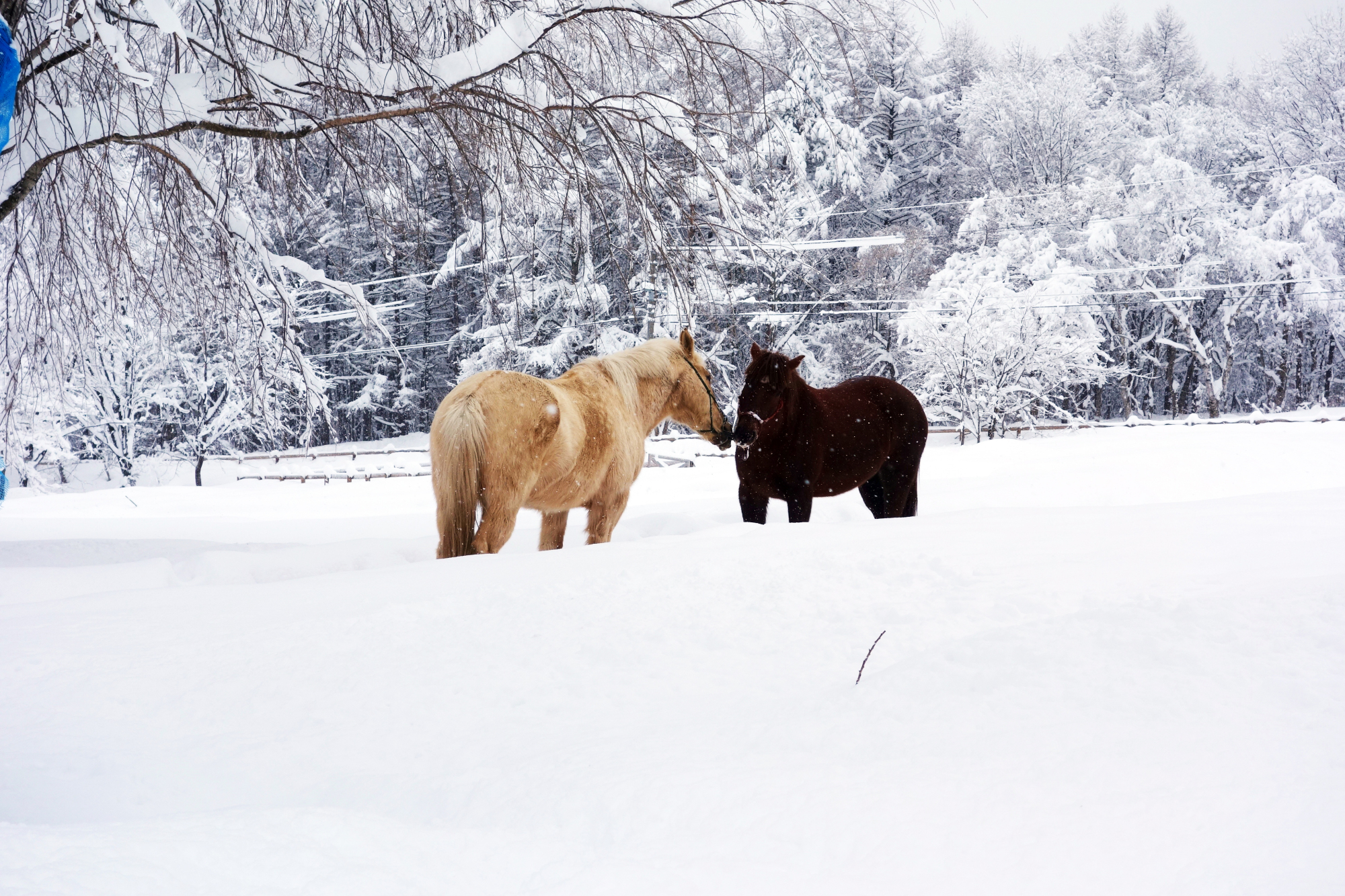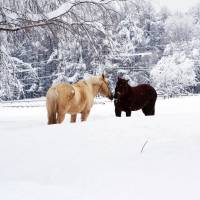A few weeks ago I had things to do in Tokyo and Yokohama, so I had a ticket booked for a late-afternoon train from Nagano on Jan. 22. Then that morning my manager in Tokyo phoned to tell me I should come early because "heavy snow" was expected during the day, meaning trains would be delayed and taxis hard to get. At the time there was snow about a meter deep around my house in Kurohime in Nagano Prefecture.
Always dutiful, I got to Tokyo about two hours before I'd originally planned. As predicted, snow was falling, though not in any way I'd consider "heavy" — but there were indeed long lines for taxis at Tokyo Station and the subway was so horrendously crowded that I had to be a one-man rugby scrum to push my way off at my stop.
By then, breathless television announcers were sticking their hands into about 10 centimeters of snow, traffic was hopelessly snarled, vehicles were slamming into each other, lamp posts and walls, and so many people were trying to get home early that staff at many stations were struggling to prevent them dangerously overcrowding the platforms.
Had I been in my cozily warm house in northern Nagano I might easily have scoffed and scorned.
There, the plows are out at around 4 a.m. when it snows, even clearing the stuff right in front of my house, which is a 15-minute drive from Kurohime Station. Our roof, built 35 years ago, is angled so snow slides off, making huge piles that usually don't melt before May; while our living room is over a basement, so its floor is 2½ meters above ground, meaning we don't have to board off the big windows to keep it warm. The only inconvenience is having to shovel snow off the front steps.
"Heavy snow" — a few inches deep? What nonsense! Admittedly, we have less snow and more winter rain than a couple of decades ago, but up in the mountains it still accumulates to a depth of around 4 meters. Still, we always have a white Christmas and snow stays on the ground till spring — though up until about 10 years ago it was so thick in winter that we had no resident deer or wild boar, whereas now we do.
In a way I was glad that I witnessed what even a few inches did to a megalopolis-capital like Tokyo, because I realized that just having to get from place to place was downright dangerous! I should have turned up in snow boots, but instead I had to pussyfoot around in city shoes, doing my utmost not to slip and crash on my butt. Most undignified!
Besides that, one taxi driver couldn't even take me all the way to my destination because of a slight incline on which his car slipped and slithered for a few minutes before he apologized and asked me to get out and walk.
Here in real snow country the vehicles are all four-wheel drive, including the diminutive K-trucks and K-cars and, of course, in November we change to snow tires. When we go into the woods, we strap on snowshoes or cross-country skis.
Anyhow, I returned to Nagano on Jan. 5 and at the station I was delighted to see dozens of non-Japanese, mostly from Australia, who'd come to enjoy snow, sake and the "hot-spring monkeys."
Then after I got back home, I went out to check on the two horses we acquired a couple of years ago, mostly to work with us in the woods, but also to use as pack animals on mountain tours we're going to run from spring to autumn.
Due to our problems getting a good full-time wrangler, this is the first winter the horses have spent here in their fine new lodge and stables. And thanks to the young, energetic and boundlessly enthusiastic horsewoman we eventually found, our 8-year-old geldings Yuki-maru and Chacha-maru were of course in fine fettle.
In fact, as they are both Dosanko horses from Hokkaido — one of Japan's eight surviving indigenous breeds — they are pretty well immune to the cold. That said, deep soft snow is dangerous for horses, so we keep their paths cleared and well-trodden so they can continue with their exercise and training.
However, on the morning of the very first snow, back in November, they were both out in their paddock galloping around, frolicking, rolling and kicking. It was as if they were celebrating the fact that, whether human or horse (or hot-spring monkey), it's far preferable to spend winter up here rather than trudging and slipping around in a big city.
And honestly, there's no better time and place than winter in snow country to enjoy tasty snacks and hot sake!




















With your current subscription plan you can comment on stories. However, before writing your first comment, please create a display name in the Profile section of your subscriber account page.